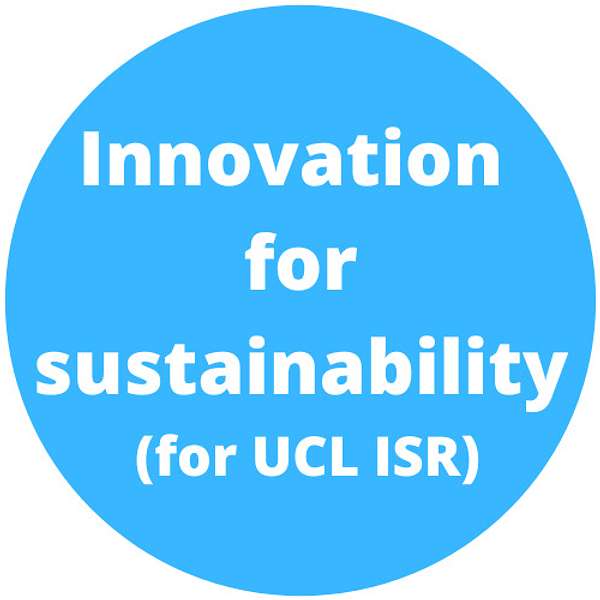
Innovation for sustainability (for UCL Institute for Sustainable Resources Masters)
Innovation for sustainability (for UCL Institute for Sustainable Resources Masters)
Adam Parr
Innovating for Sustainability series is back after an unintentional summer break with a great interview.
Adam Parr is an Oxford-based barrister researching law, enterprise, and the environment (website, wikipedia, academic bio). His 30-year career has encompassed finance, law, industry, and sport. Since 2012, Adam has helped build a number of companies as a VC investor and founder. He chairs Oxford Semantic Technologies (an AI technology business), Cheesecake Energy Limited (a heat storage business) and Homeland Conservation, a charitable trust dedicated to accelerating action on climate. He is a member of the Bar of England and Wales and a Business Fellow of the Smith School of Enterprise and Environment.
We cover a lot of ground, especially on Adam's role as a board chair and angel investor. Some things to pull out:
-The role of a chair is not to run the company.
-The first responsibility is to make sure there is a great chief executive in place.
-Often, the original founder might be a great technologist. But that's not the same as great CEO.
-Fundraising can be a massive burden for a start-up CEO.
-A startup is thinking about funding all the time, and also making sure the next raise does not harm the the future fundraising options.
-Adam looks at each business in its own context, not trying to impose one sustainability approach, or require a pre-determined 'impact'.
-He selects areas to be in based on solving crucial pinchpoints (eg energy storage for renewable energy grid). Focus on things that are going to make a strategic difference.
-Story about realising the energy transition was important to Formula One, and so developing a hybrid vehicle, and doing carbon report.
-Formula One shows that you have to get the rules (and incentives) right, so that people do what can be done. Changing the rules is fiercely contested by incumbents, who succeed with the rules as they are.
-THe Inflation Reduction Act is a great example of setting good rules.
-All this shows how much political economy is tied up with innovation activity, especially when it requires displacing incumbents.
-Adam uses a variant on Agile, drawn from Schaffer Consulting's Rapid Results method. The Stanford Social Innovation Review article ($). Key insight: create the zest of a crisis to get more done.
-With climate, we don't have a lot of time. "Nuclear fusion is fantastic. Quantum Computing is fantastic. Anybody who says that ...[these technologies are] going to help us address the climate crisis needs their head examining."
This is part of a series of interviews about innovation for sustainability conducted for the UCL Institute for Sustainable Resources, as a contribution to a module in this Masters. You can find out more about these interviews, and the module, here.